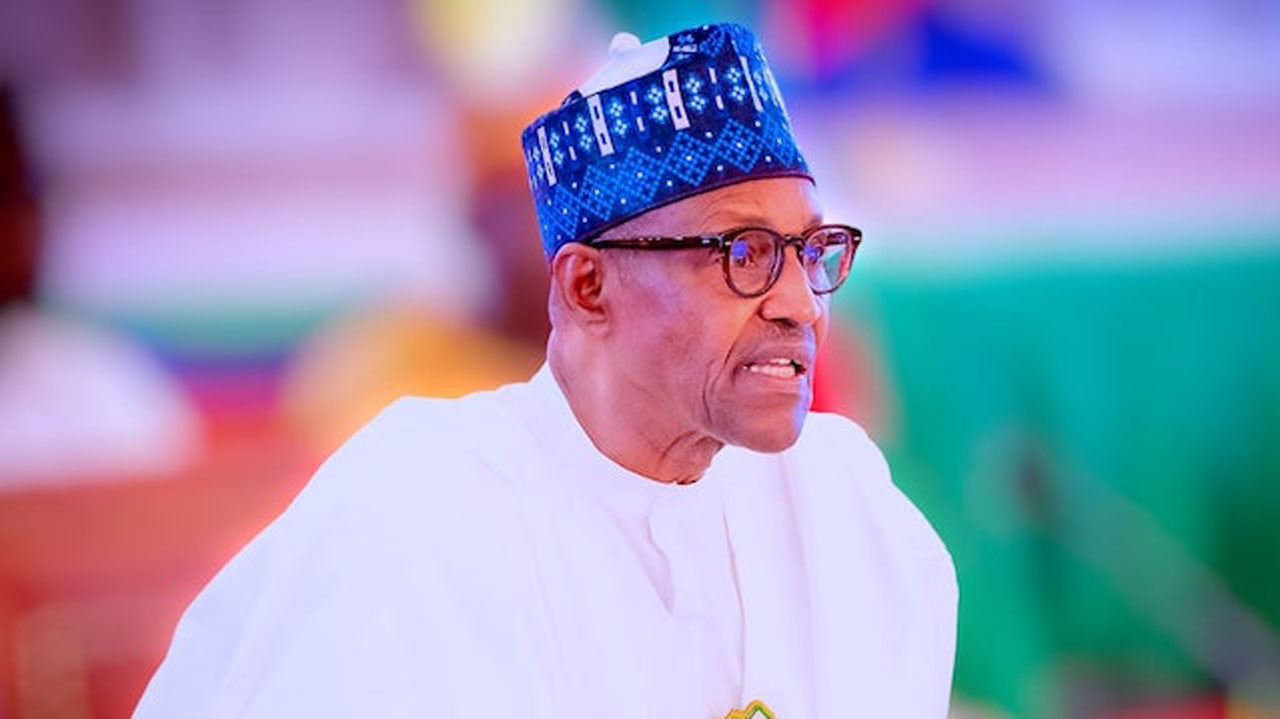Tribute to Former President of Nigeria Muhammadu Buhari (1942–2025)

By Distinct News
Nigeria mourns the passing of one of its most iconic leaders, President Muhammadu Buhari, GCFR, who died on Sunday, July 13, 2025, at the age of 82 in London, United Kingdom. Born on December 17, 1942, in Daura, Katsina State, Buhari lived a life defined by discipline, integrity, and an unwavering commitment to the service of his nation.
A Soldier, a Statesman, a Patriot
President Buhari first emerged on the national scene as a disciplined and principled military officer. He served in various capacities within the Nigerian Army, rising through the ranks to become Head of State from December 31, 1983, to August 27, 1985, after leading a military coup against a civilian administration he considered corrupt and ineffective. Though his time in power was brief, it left a legacy of order, discipline, and anti-corruption rhetoric that would define his public image for decades.
Three decades later, in 2015, Muhammadu Buhari made history by becoming the first opposition candidate in Nigeria to defeat an incumbent president through democratic elections. He was elected under the All Progressives Congress (APC) and went on to serve two consecutive terms as Nigeria’s democratically elected president from 2015 to 2023.
Major Achievements
1. Anti-Corruption Drive:
Buhari’s presidency was strongly defined by his anti-corruption campaign. He spearheaded the recovery of looted public funds, strengthened the Economic and Financial Crimes Commission (EFCC), and introduced transparency policies across public procurement and budgeting.
2. Security:
His administration prioritized combating terrorism, particularly the Boko Haram insurgency in the Northeast. While insecurity remained a challenge, Buhari’s government reclaimed territories previously under insurgent control and restructured Nigeria’s military command to improve coordination.
3. Infrastructure Development:
Under his leadership, Nigeria witnessed a renewed focus on infrastructure, with notable projects including:
Completion of the Second Niger Bridge
Extensive rehabilitation of federal roads and expressways
Expansion of railway networks across key cities (e.g., Abuja-Kaduna, Lagos-Ibadan)
Launch of the Presidential Infrastructure Development Fund
4. Agriculture and Economy:
Through the Anchor Borrowers Programme and other agricultural initiatives, Buhari’s government encouraged food production, especially rice farming, leading to reduced reliance on food imports.
5. Social Investment Programmes:
His administration introduced Nigeria’s first large-scale Social Investment Programmes (SIP), including N-Power, TraderMoni, and school feeding schemes aimed at reducing poverty and empowering youth and small businesses.
6. Petroleum Sector Reform:
In 2021, Buhari signed the long-awaited Petroleum Industry Act (PIA) into law, aimed at restructuring Nigeria’s oil and gas sector for improved transparency, efficiency, and investment.
7. Electoral Reforms:
His government worked with the National Assembly and civil society to lay the groundwork for improved electoral processes, including the signing of the Electoral Act Amendment Bill 2022, which introduced electronic transmission of results and other reforms.
Despite criticism for his austere leadership style and perceived slow pace of governance, Buhari remained a symbol of integrity to many. He was known for living modestly, avoiding flamboyance, and staying true to his ideals of discipline, patriotism, and national unity.
Just In: President Tinubu Orders Shettima to UK to Bring Back Buhari’s Body
He retired to his hometown of Daura in 2023, after completing his presidential tenure, and continued to advocate for national peace and the preservation of democratic ideals.
President Muhammadu Buhari leaves behind a complex but enduring legacy. He was a man of deep conviction, whose love for Nigeria shaped decades of his life. As the nation mourns, it also remembers the soldier who became a statesman, and the man who, despite challenges, served his country with resilience.
May his soul rest in perfect peace.
